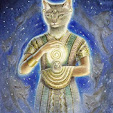Monday 24 Jan will see nationwide protests against cuts to benefits and services.
In London, there will be a PARTY AND PICNIC IN TRITON SQUARE, Euston.
Come to a picnic and party in Triton Square, London on the 24th January 2011 from 2pm as part of the National Day of Protest Against Benefit Cuts.
Bring music, drums, whistles, banners, food to share and let’s brighten up the faceless corporate wasteland that is home to poverty pimps Atos Origin Ltd.
Musicians, poets, orators, ranters, shouters, all benefit claimants and supporters welcome. Please help spread the word and invite your friends.
Triton Square is on the North side of Euston Road, a minute or so from Warren Street tube and less than five minutes from Euston/Euston Square or Great Portland Street tube stations.
Part of the National Day of Protest Against Benefit Cuts on the 24th January 2011.
Facebook page at: http://www.facebook.com/event.php?eid=126713940728397
There will be other protests throughout the UK, here are a couple of examples.
Brighton – Using the 24th to publicise a bigger event against Atos Origin on the 5th Feb:http://www.facebook.com/event.php?eid=181302175222578
La Lotta Continua!





























